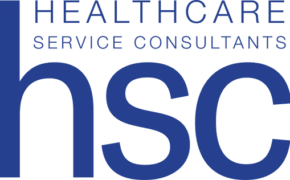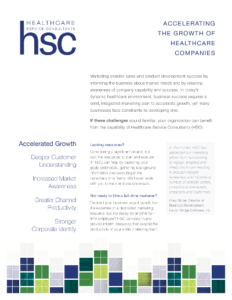
Most healthcare IT marketers know a few things about the role of Search Engine Optimization (SEO) in digital marketing. Yet, optimizing SEO is a complex undertaking. A company’s investment in this area benefits from specialized expertise.
To get the best results from SEO, it’s important for healthcare IT marketing leaders to understand how it works. Namely, how you can leverage SEO to attract elusive clinical, technical, and operational healthcare IT stakeholders to your website.
In this blog we will discuss the role of SEO in healthcare IT. We’ll also explore some best practices for implementing effective SEO programs to:
- increase brand awareness and value
- connect with and target various buyer personas in healthcare IT
- generate sales leads
Why SEO Is Important
An effective SEO strategy provides healthcare IT companies with a tool to increase their online visibility beyond traditional direct and organic means (e.g. email, social, virtual trade show presence, etc.). It is also a valuable strategy for ensuring your intended audiences see your educational content offerings. It bolsters your position as a thought leader and solutions provider in your area of expertise.
Implementing SEO
Implementing SEO primarily involves optimizing your content to leverage keywords. These are words or phrases associated with your brand, products, and problems you solve. To be effective, they should be well researched and consistent in your online content. Search engines then recognize and rank them when crawling for search results. The following is a list of best practices for identifying and integrating keywords into your digital marketing strategy.
1) Identify the words that best represent your brand, product, and problems you solve. Consider the hierarchy of healthcare IT stakeholders. Try to ensure keywords are terms that resonate with all personas in your target audience. It’s important to use keywords that are not too generic—words that every company uses like “Healthcare”. Or, too proprietary—brand- or product-specific words no one would search for unless they already knew about your company.
2) Problems as keywords. Identify words or phrases that articulate the problems your target healthcare IT personas are trying to solve. Remember, they may be searching for ideas about how to solve them, instead of solutions themselves. For example, a radiology department leader may search for “quality improvement methods” (a problem) instead of “peer review” (a potential and specific solution).
3) Consider SEO when developing new content. It’s easy to overlook SEO when building a new website or web page. But, implementing SEO after the fact can be difficult and time consuming. This approach rarely results in the same level of efficacy as an SEO-first approach.
4) Use keywords frequently in your educational content. The more you use keywords in your web pages, article headlines, social media posts, blogs, and other online content, the more search engines will recognize and rank them.
5) Remember to populate web “snippets.” Besides listing relevant links, Google also highlights small blocks of content in its search results. It’s important to populate these in your website and ensure the nomenclature you’re using is consistent.
Tips for Effective Healthcare IT SEO
Identifying and integrating keywords into your digital marketing content is a good first step. There are also several content distribution strategies that can further maximize the impact of your SEO efforts. Such as:
1) Keep your content fresh. Search engines prefer new content. Updating product pages with each release can help boost SEO rankings. Posting monthly blogs provides a great opportunity to share thought leadership. It also ensures fresh content is being added to your website.
2) Use landing pages. Search engines prioritize websites that show growth. Add valuable educational content like case studies and white papers behind gated landing pages. These are independently searchable, and it shows your website is expanding.
3) Cross reference links where possible. Search engines also prioritize content that references other external, credible sources. Be sure to cross-reference content between your website, social media, external trade publications, and other credible third-party websites. This creates an online content “web” that will rank higher on search engine results pages.
4) Promote event attendance on your website. Leverage trade show buzz to elevate your website’s search rankings. Post an ad or brief statement about your attendance on your homepage. This educates your target audience about your attendance. But, it also creates the opportunity to associate your website with the tradeshow keywords.
5) Consider paid keywords. If competitors use similar keywords with similar offerings, and if budget allows, it can be beneficial to pay for specific, targeted high-value keywords. Doing so associates them with your brand and “bumps” you to the top of the search engine results page.
Incorporating SEO into Your Healthcare IT Marketing Program
Do you want to optimize your SEO strategy and rankings? Our team of product marketing experts can help you identify relevant keywords and build effective content strategies to increase website traffic across your target healthcare IT audiences. Contact us to learn more.




